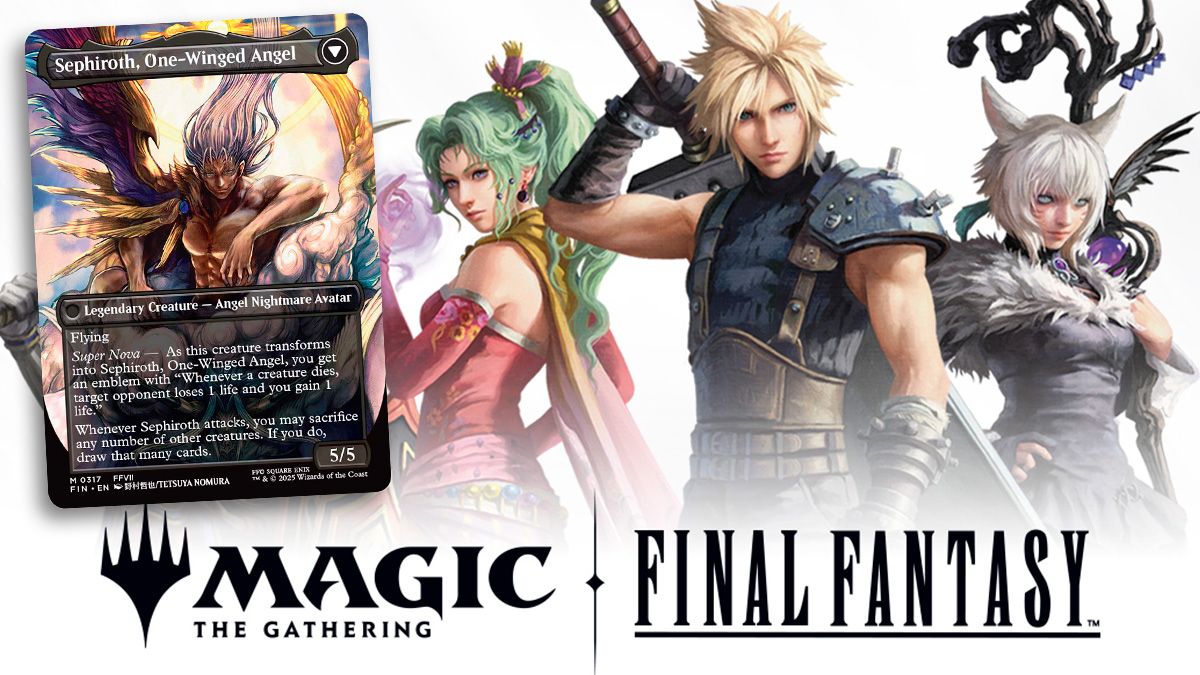Movies, right? They grab us, pull us in, and sometimes, they absolutely devastate us. We sign up for thrills, romance, and adventure, but then a film hits us with a moment so sad it sticks long after the credits. These aren’t just characters; they become friends, making their departures feel incredibly personal.
When we talk about cinematic goodbyes, a special ache is reserved for those deaths that truly *hurt*. They defy expectations, break our hearts, and leave us wondering how to move on. From shocking accidents to selfless sacrifices, these moments resonate deeply, cementing their place in film history as unforgettable.
We all have that one movie death we can’t get over, the one that makes us misty-eyed thinking about it. Today, we’re diving deep into impactful, tear-jerking cinematic goodbyes. Get ready to revisit emotional real estate, because these movie deaths still wound us, decades later.
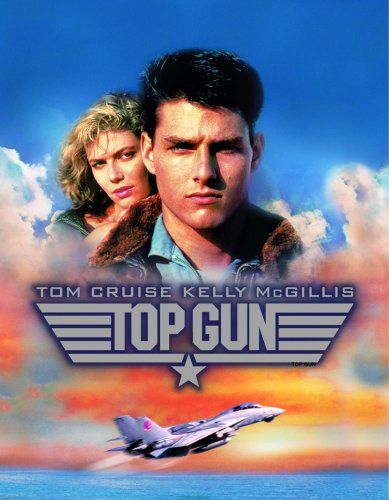
1. Lieutenant Nick “Goose” Bradshaw – “Top Gun” (1986)
Oh, Goose. The wingman, best friend, ultimate hype man. Lieutenant Nick “Goose” Bradshaw’s death in “Top Gun” is an unexpected, gut-wrenching loss. He and Maverick shared a genuinely brotherly bond, doing “practically everything together, like attending Top Gun and flying past the control tower and spooking their superior.” Their camaraderie was the film’s undeniable heart, making his departure jarring.
The danger of military aviation is constant, but nothing prepares you for Goose’s brutal demise. During a critical training exercise, their jet enters a flat spin, forcing a desperate ejection. While Maverick makes safety, Goose tragically “slams into the canopy at high speed,” dying instantly. This loss consumes Maverick with “intense survivor’s guilt.”
The ripple effect is profound. “Maverick and Goose’s family grieving in equal measure” underscores the deep impact. His legacy became “a major subplot in “Top Gun: Maverick,” resulting in buckets of tears” for a new generation. It’s a testament to how deeply his character resonated, cementing his place as an unforgettable casualty.
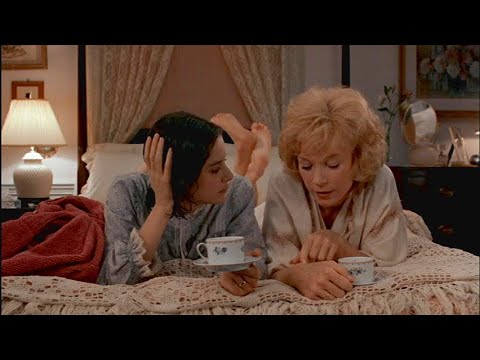
2. Emma Greenway-Horton – “Terms of Endearment” (1983)
“Terms of Endearment” delivers profound devastation through intricate family bonds. Emma Greenway-Horton’s journey through life’s hardships feels incredibly real. Debra Winger earned an Oscar nomination for portraying this “wickedly sympathetic” and profoundly human character, establishing her powerful presence.
The core is Emma’s fraught but loving relationship with her domineering mother, Aurora. This dynamic forms the story’s complex backbone. We follow Emma as she navigates personal ups and downs, including being cheated on, adding layers of sorrow to her existence.
The ultimate tragedy strikes when Emma is “eventually diagnosed with cancer at a relatively young age.” This cruel twist transforms the film into a harrowing portrayal of terminal illness. Watching her weaken, with Aurora by her side, is “unbelievably difficult,” bringing “an uncomfortable aura of realism to the tragedy.”
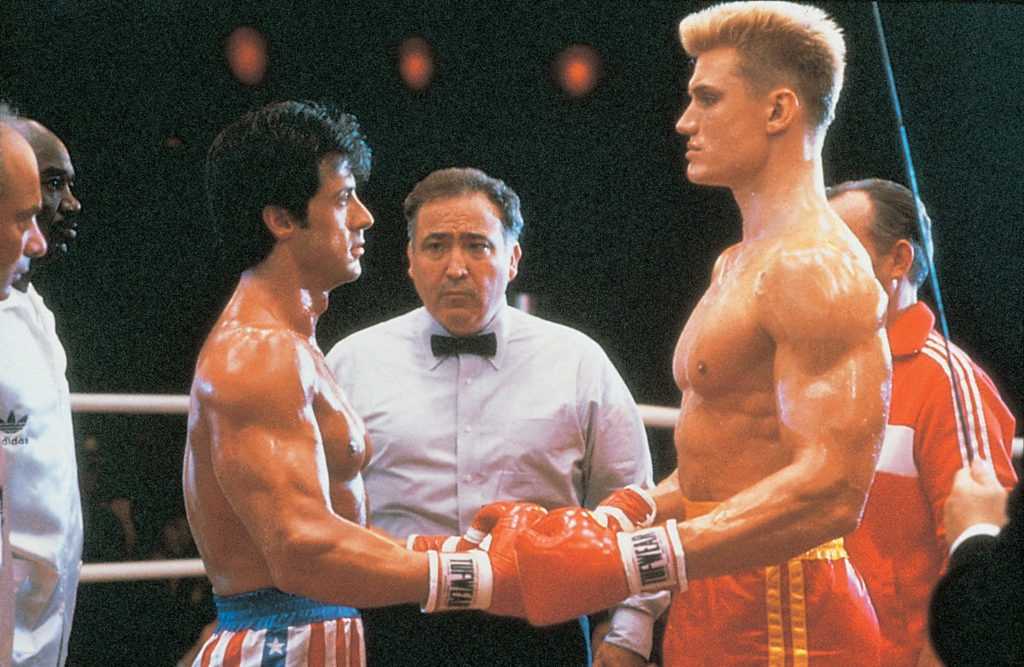
3. Apollo Creed – “Rocky IV” (1985)
“Rocky IV” is often remembered for outlandish elements: “ridiculous Cold War metaphors,” a “Terminator-esque opponent,” a “talking robot.” It was “easily the goofiest film,” yet amidst the spectacle, it delivered a truly heartbreaking moment: the death of Apollo Creed.
For “Rocky” fans, Apollo was more than a character; he journeyed from “cocky villain to mentor,” blossoming into “Rocky’s closest friend.” Their relationship matured into a deep bond built on respect and loyalty across multiple films, making him a beloved figure.
When Apollo steps into the ring against Ivan Drago, foreboding hangs heavy. His sudden, brutal demise sends shockwaves through Rocky and the audience. “When Rocky lost Apollo, he lost a part of himself,” and the narrative explores his “grief and isolation.” “Rocky was never the same after Apollo’s death, and it still hurts.”

4. Shelby Eatenton-Latcherie – “Steel Magnolias” (1989)**
“Steel Magnolias” profoundly portrays female friendship and resilience. It’s a “devastating story about sisterhood and sickness,” made unforgettable by its “iconic cast.” At the core is Shelby Eatenton-Latcherie, whose spirit shines, played by Julia Roberts in “one of her earliest movie roles.”
Shelby’s story is poignant due to its real-life connection. The vibrant young woman with type one diabetes was “modeled after the sister of author and screenwriter Robert Harling, who passed away in 1985.” This inspiration infuses her struggle with undeniable authenticity.
Throughout, Shelby navigates life with her condition, yearning for normalcy and family. She tragically “suffers fatal complications following the birth of her child and an organ transplant.” The scene where “her family finally decides to take her off life support” is a tear-jerker, leaving “not a dry eye in the house.”
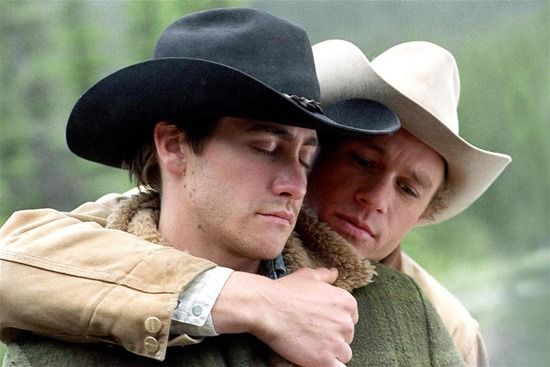
5. Jack Twist – “Brokeback Mountain” (2005)
“Brokeback Mountain” tells a beautiful, heartbreaking love story against all odds. Jack Twist and Ennis Del Mar find “love at first sight” on the mountain, a connection defying rigid 1960s “masculine American West” norms where their affection was taboo.
Their love story is fraught with “obstacles that prevents them from openly embracing each other.” The film portrays internal/external pressures, constant discovery threats, and profound longing for a public life they can’t claim. It’s “one of complete tragedy” from the start.
News of Jack’s death comes as a brutal, ambiguous twist. His wife says “Jack dies in a freak accident.” But Ennis “believes that he was violently killed.” This “ambiguity makes it all the more tragic,” taking “true love” and preventing “any real closure.”
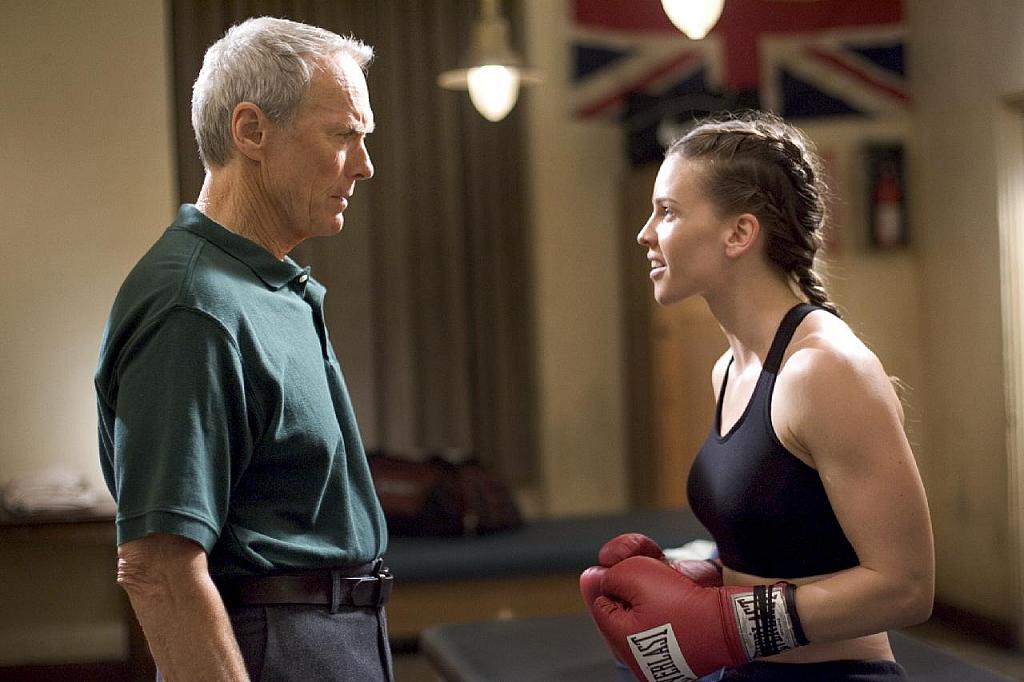
6. Maggie Fitzgerald – “Million Dollar Baby” (2004)
Clint Eastwood’s “Million Dollar Baby” masterfully subverts expectations, lulling viewers before delivering an emotional gut-punch. It starts as a classic underdog boxing story, centering on an “underprivileged underdog who defeats her personal demons in the ring.” Maggie Fitzgerald fights to the top.
But then, a “major plot detour comes with incredible emotional power,” transforming an uplifting journey into profound despair. This narrative pivot few saw coming. It elevates the film beyond sports drama, into deep philosophical questioning about life’s turns.
The turning point is a “freak accident” during a title fight where “Maggie breaks her neck on a stool.” This devastating moment shatters her career and life, rendering her quadriplegic. “Unwilling to live as a quadriplegic, she asks that her trainer Frankie end her life.” This “controversial ending is a major tonal whiplash.”

7. The Terminator – “Terminator 2: Judgment Day” (1991)
Who knew a killer robot could make us cry? James Cameron did. In “Terminator 2,” he proved himself a “brilliant filmmaker” by giving “deep humanity to a killer robot,” crafting a “touching story about fatherhood.” The T-800 evolves into a paternal figure for John Connor.
The growing bond between the Terminator and John becomes the emotional core. The T-800 transforms into “a loving and deeply protective father figure,” offering John protection, guidance, and security. This unlikely, powerful connection makes their separation “one of the most gut-wrenching goodbyes.”
As battle rages, the harsh reality clarifies: Terminator must make ultimate sacrifice. “Knowing that he has to die to save the future,” the T-800 “orders that Sarah lower him into a vat of molten steel.” Every element is “legendary,” from “the music” to “the iconic thumbs up.” “Hasta la vista, indeed.”
Ready for another dive into the depths of cinematic despair? Because as much as we love happy endings, some of the most unforgettable movie moments are the ones that leave us absolutely heartbroken. These are the deaths that stick with us, shaping our understanding of characters and the power of storytelling.
Today, we’re delving into another set of deeply affecting movie deaths, including a father’s ultimate act of love, a couple’s bittersweet final moments, and the shattering innocence of childhood loss, showcasing how filmmakers continue to masterfully evoke lasting grief. Grab your tissues, because we’re not done with the feels just yet.
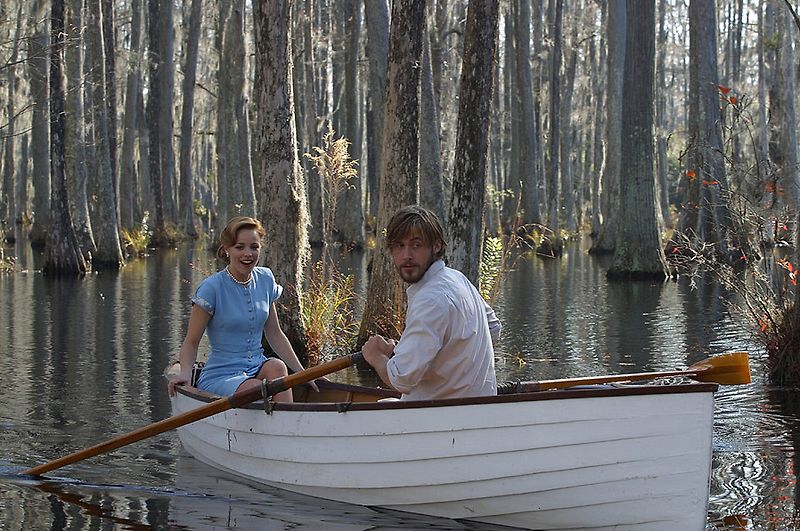
8. Noah Calhoun & Allie Hamilton – “The Notebook” (2004)
If you’ve ever cried over a romantic drama, chances are you’ve shed a tear or twenty for “The Notebook.” This classic Nicholas Sparks tale delivered a sweeping, bittersweet romance chronicling the lives of Noah Calhoun and Allie Hamilton. It’s a quintessential ‘poor boy, rich girl’ narrative, but its emotional resonance comes from a clever storytelling twist that makes their love story, and eventual separation, all the more poignant.
The core narrative of their tumultuous, passionate relationship is beautifully told through flashbacks. We follow their journey, their youthful ardor, their separations, and their eventual reunion against all odds. Then, a revelation hits you: this entire, epic love story is being recounted by an elderly Noah to a now dementia-ridden Allie, who struggles to recall their shared past. It transforms the romance into a profound exploration of memory, devotion, and the cruel grip of illness.
Their final moments together are a powerful, quiet testament to enduring love. Some time after Noah completes their tale, he joins Allie in her bed. They die together, holding hands, a scene that might lean into sappiness for some, but for many, it’s an undeniably beautiful and heart-wrenching depiction of two souls inextricably linked. The raw portrayal of dementia and the peace they find together ensures that this ending will forever live rent-free in our collective heads.
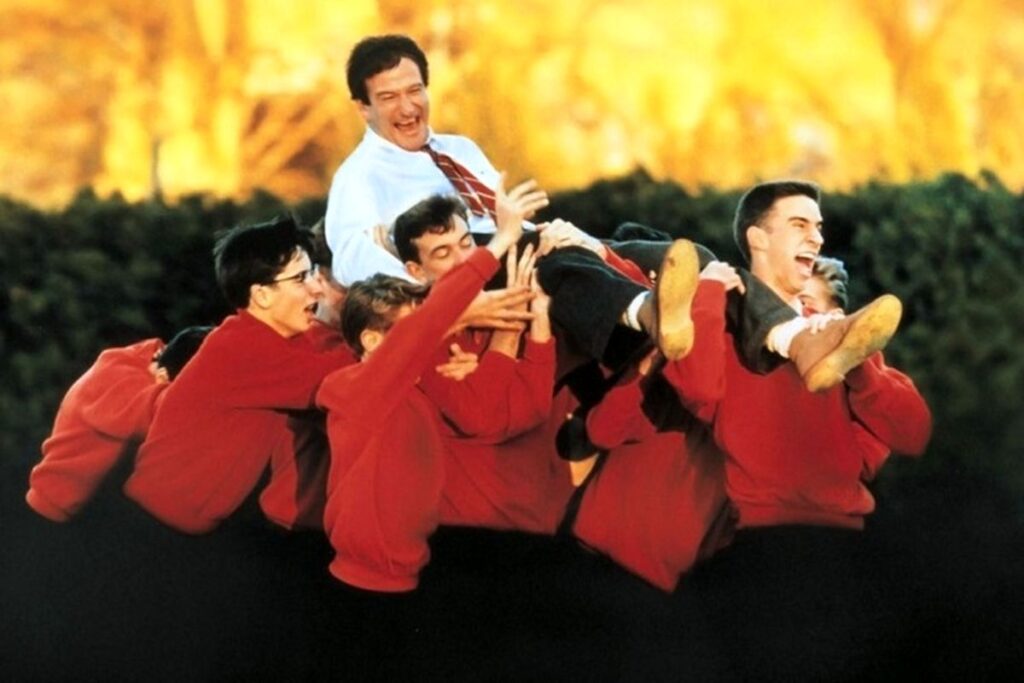
9. Neil Perry – “Dead Poets Society” (1989)
“Dead Poets Society” captivates us with its exploration of literature’s transformative power, led by Robin Williams’ mature and reserved portrayal of John Keating. However, beneath the stirring calls to “Carpe Diem” lies a devastating story about the soul-eating effects of demanding expectations, particularly through the tragic narrative of Neil Perry. Neil embodies the struggle of a young man trapped by his cruel father’s relentless demands for perfection and studious obedience.
Neil’s burgeoning passion for acting, ignited by Keating’s unconventional teaching, clashes violently with his father’s rigid expectations. His father sees no value in artistic pursuits, only in a predetermined, academic path. We watch Neil grapple with this profound internal conflict, his spirit slowly being crushed under the weight of his father’s authoritarian control. He yearns to live his own life, but the pressure to conform, to be the son his father desires, becomes an unbearable burden.
The demands weigh so heavily on Neil’s psyche, culminating in his father pulling him from the boarding school for getting too attached to acting. Physically and emotionally shattered, Neil, seeing no escape, tragically takes his own life. The ensuing scene, showcasing the horrific reaction from his parents, is flawlessly performed by Kurtwood Smith and Carla Belver. This sequence cuts right to the heart, offering a chillingly realistic portrayal of the devastating consequences when dreams are stifled and expectations become inescapable chains.

10. Sirius Black – “Harry Potter and the Order of the Phoenix” (2007)
Oh, poor Harry Potter. For years, he yearned for a true family, a sense of belonging, and then, he found it in his godfather, Sirius Black. Sirius wasn’t just a paternal figure; he was a link to Harry’s past, a symbol of hope, and a promise of a future where Harry might actually have someone who truly cared. Their bond, built on loyalty and a shared history, made Sirius’s eventual, sudden departure all the more gut-wrenching, like hope itself was snatched away.
Sirius’s end comes during the climactic, chaotic battle at the Ministry of Magic. As Harry and his friends fight the Death Eaters, Bellatrix Lestrange, with her signature brand of maniacal cruelty, strikes Sirius with the killing curse. The effect is instant, disorienting. He falls backward through the veil, vanishing before anyone, including Harry and the audience, can fully grasp what has just happened. The sheer speed and confusion surrounding his death only intensify the tragedy, leaving us in a state of shock, just like Harry.
We didn’t want to believe it. How could Harry finally find a family member, only to lose him so brutally and quickly? Our hearts were left broken, and the pain didn’t stop there. This loss set a precedent, a cruel foreshadowing of more beloved characters we’d tragically lose in subsequent films, like Dumbledore and Dobby. Sirius’s death remains a stark reminder of the sacrifices made in the wizarding world, and for many fans, the pain of his passing still lingers, making it one of the most impactful goodbyes in the series.

11. Wolverine / Logan – “Logan” (2017)
“Logan” wasn’t just another superhero movie; it was a profound bookend for an era, a poignant comment on the evolution of the superhero genre itself. The film served as a culmination of nearly two decades of Hugh Jackman’s iconic portrayal of Wolverine, a character who basically kickstarted the modern superhero movement with the first “X-Men” film. It was less about flashy heroics and more about the quiet, brutal end of a legend.
This movie gave us an aging superhero, well past his prime, weary, and resigned to his tragic fate. The bleaker, grittier tone reflected a genre that had matured, become hardened by years of conflict and sacrifice. Watching Logan, scarred and broken, fighting his last battles was incredibly tough. People literally grew up watching Hugh Jackman embody Wolverine, making his journey and eventual passing feel deeply personal, like saying goodbye to an old, troubled friend.
Logan’s death served as both a metaphorical passing of the baton to a new generation of mutants, and a powerful, emotional capstone to his long, arduous story. His final, heroic sacrifice was a wrenching moment, symbolizing the end of an era and the heavy toll of an extraordinary life. It was a brutal, beautiful farewell that left us all with a lump in our throats, cementing its place as one of the most impactful, and hardest to watch, superhero goodbyes.
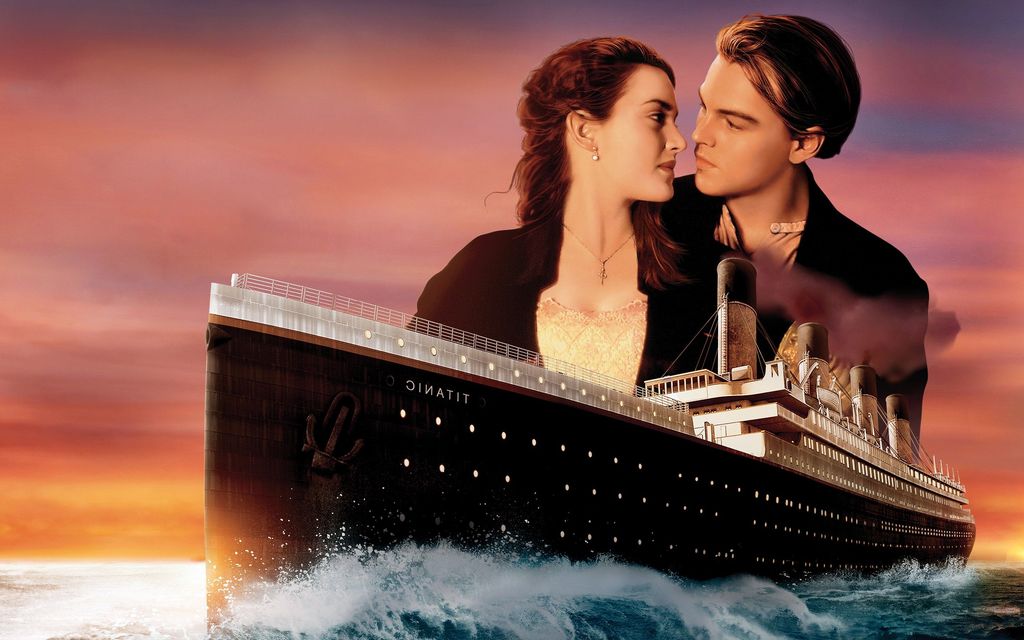
12. Jack Dawson – “Titanic” (1997)
Alright, so spoiler alert: the Titanic sinks. We all knew that going into James Cameron’s epic, but that didn’t make Jack Dawson’s death any less despairing, did it? His unexpected demise, after a whirlwind romance with Rose, cemented itself as one of cinema’s most tear-jerking moments, proving that even a known tragedy can still surprise us with its emotional impact. It was the ultimate, unfair goodbye.
Perhaps it’s the sheer injustice of how he dies, or the selfless love he displays until the very end. Jack continues to protect Rose, sacrificing his own chance at survival so she can remain on the drifting door. We are then forced to watch him slowly freeze to death in the frigid Atlantic, his grip weakening, his life slipping away. Let us tell you, that did not make for easy viewing; it was an agonizing, drawn-out moment that amplified the pain.
By the end, we are left listening to Rose’s desperate, pained cries as she realizes her love is truly gone. Kate Winslet’s portrayal perfectly captures the raw pain and utter confusion of such a tragic event, her shattered voice echoing the heartbreak of millions. That frozen hand slipping away, the final, whispered promises – it’s a scene that forever etched itself into our collective memory, a testament to a love that was too brief, too beautiful, and too devastatingly lost.
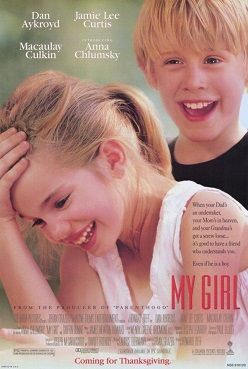
13. Thomas J. Sennett – “My Girl” (1991)
There are very few things in life more tragic, more profoundly shattering, than the death of a child, and “My Girl” delivers this heart-wrenching reality with brutal honesty. Thomas J. Sennett, the sweet, bespectacled best friend to Vada, meets his untimely end in a way that is both freakish and utterly devastating. While searching for Vada’s mood ring, he accidentally kicks a bees’ nest, and the ensuing swarm results in a fatal allergic reaction. It’s a moment that rips a hole right through you.
What makes this scene so unforgettable isn’t the graphic depiction of the death itself – we don’t really see anything beyond Thomas flailing and his glasses falling to the ground. Instead, it’s Vada’s raw, inconsolable reaction that truly tugs on the heartstrings. Anna Chlumsky, with acting skills far beyond her tender age, sells her pain with such conviction that it becomes an almost unbearable experience for the viewer. Her desperate cries and frantic pleas for him to breathe make you feel every ounce of her innocent grief.
That scene in the funeral home, where a devastated Vada screams, “He can’t see without his glasses!” has been indelibly ingrained in our brains since childhood. It’s a moment of shattering innocence, a stark reminder of life’s unpredictable cruelty, especially through the eyes of a child. Every time we think about it, we can’t help but get emotional. Thomas J.’s death is a truly defining portrayal of childhood loss in pop culture, a wound that never quite heals.
What Stays With Us
From brave sacrifices in freezing waters to the silent, gut-wrenching goodbyes in a hospital room, these movie deaths are more than just plot points. They’re emotional landmarks, moments when cinema reaches out and grabs our hearts, refusing to let go. They remind us of the power of storytelling to make us feel, to connect us to characters we’ve known for mere hours, and to leave an indelible mark on our souls. Whether they come with a bang or a whisper, these farewells linger, shaping our understanding of love, loss, and the bittersweet beauty of life itself. And for that, we’ll keep revisiting them, tissues in hand, time and time again.


